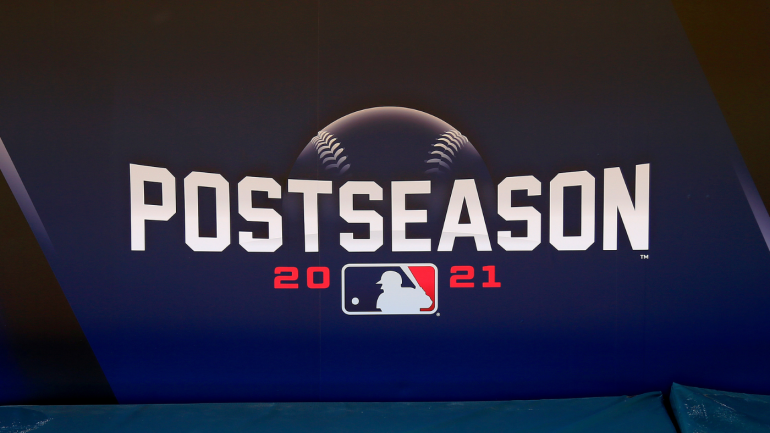
Baseball's collective bargaining agreement, the contract that allows MLB and the MLBPA to conduct business, expires at 11:59 p.m. ET on Dec. 1. It is the expected the two sides will be unable to reach a new agreement prior to that time, at which point the owners will likely lock the players out, giving baseball its first work stoppage since the 1994-95 players' strike.
Among the many items being discussed during collective bargaining talks is an expanded postseason format, something MLB has sought for years to increase revenue. Last year, during the pandemic-shortened 60-game season, MLB used an expanded 16-team postseason format, though just about all involved agrees that is too many teams. It's more than half the league.
During recent collective bargaining sessions MLB has again proposed an expanded 14-team postseason format, reports ESPN's Jesse Rogers. It's same format the league floated during the 2019-20 offseason, prior to the pandemic. Here's how it would work:
- Seven teams from each league make postseason.
- Teams with best record in each league get wild card round byes.
- Two other division winners and top wild card team host all games of three-game series in wild card round.
- Two other division winners get to pick their wild card round opponents from three other wild card teams.
- Three series winners and team with a bye advance to divisional round.
Here's what the 2015-19 postseason fields would have looked like with the proposed 14-team format. The 79-82 Marlins would have made the postseason in 2016, and the 80-82 Rays and Angels would have made it in 2017. Needless to say, no one wants sub-.500 teams in the postseason.
This is the postseason bracket the 14-team format would have yielded in 2021 (matchups based on record since we don't know which opponents the division winners would have picked):
American League
BYE: Rays (100-62)
WC1: Astros (95-67) vs. Mariners (90-72)
WC2: White Sox (93-69) vs. Blue Jays (91-71)
WC3: Red Sox (92-70) vs. Yankees (92-70)
National League
BYE: Giants (107-55)
WC1: Brewers (95-67) vs. Phillies (82-80)
WC2: Braves (88-73) vs. Reds (83-79)
WC3: Dodgers (106-56) vs. Cardinals (90-72)
Pretty stout matchups in the American League. 90-win teams all around. In the National League though? We would have come dangerously close to a .500 (or even sub-.500) team making the postseason.
And that's the risk with an expanded postseason field. You water down the postseason competition, reduce the importance of the 162-game regular season (the thing that makes baseball great and separates it from the other major sports), and increase the role randomness plays in the postseason. The postseason is enough of a crapshoot. Do we need to crank it up another notch?
Part of MLB's concern is that by lowering the bar to get into the postseason, it would disincentivize teams from trying to improve because hey, 84 wins could get you into October. That could mean fewer dollars spend on free agents, less urgency to call up that prospect, so on and so forth. Those are very valid concerns given the anti-competitive behavior we see today.
It should be noted MLB has already sold the Wild Card Series broadcast rights to ESPN, according to the New York Post's Andrew Marchand, so they have a lot on the line here. The MLBPA knows that and can leverage it, at least in theory. For now, the league is again trying to expand the postseason. What shape the expanded format takes is a little uncertain at the moment.


















